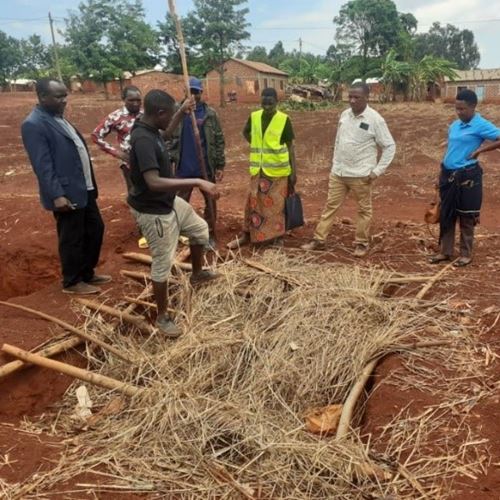
The expensive agricultural inputs, including a 50kg bag of manure priced at Tsh 75,000, weighed heavily on this smallholder farmer's shoulders. His fortunes began to change for the better when he was selected as a participant in the Food For Asset (FFA) program introduced in his village through a partnership between the Danish Refugee Council (DRC) and the World Food Programme (WFP).
Mageuzi attended a series of compost manure module sessions and actively participated in practical compost-making and related activities. He was quick to share his newfound knowledge as he had learnt to create high-quality compost manure using locally available materials at no cost. This significantly improved soil health and his crop yields.
He is now planning to invest 50,000 TZS in acquiring organic fertilizer, with a particular focus on horticulture, especially organic tomatoes, which he intends to sell in the local market and use for his family's consumption.
The practice of making compost manure not only promises to boost soil health and fertility but also reduces the reliance on expensive synthetic fertilizers, while also being environmentally friendly.
By imparting composting skills to FFA members and farmers, the community aims to enhance agricultural productivity, ensure food security, and contribute to a more resilient and sustainable agricultural sector.
Mageuzi's story is a testament to the transformative power of knowledge and sustainable farming practices. It showcases how with the right training and resources, smallholder farmers like him can overcome challenges, boost their yields, and build a brighter future for themselves and their communities.
